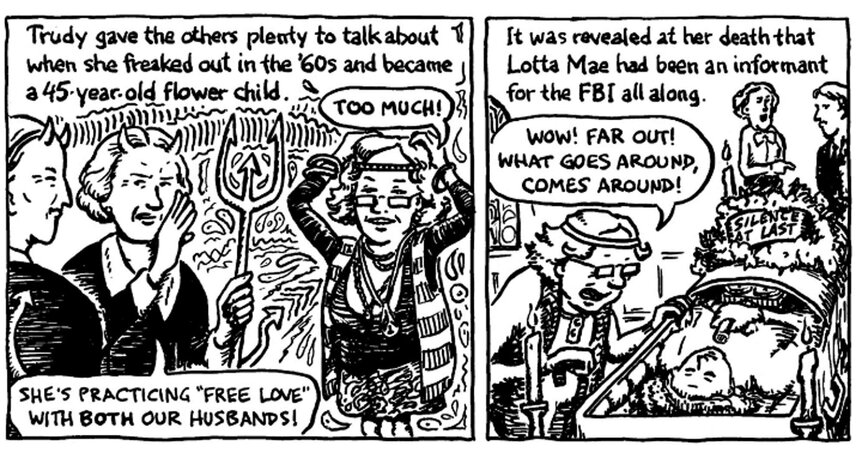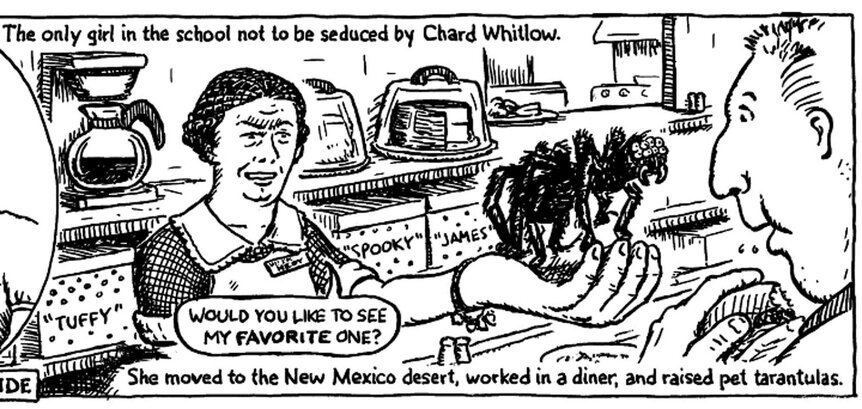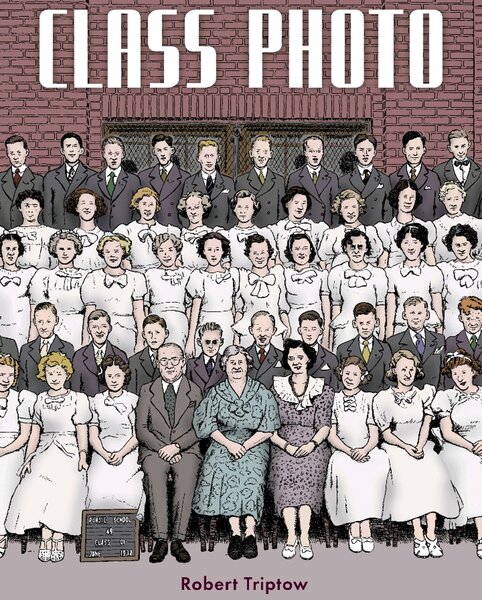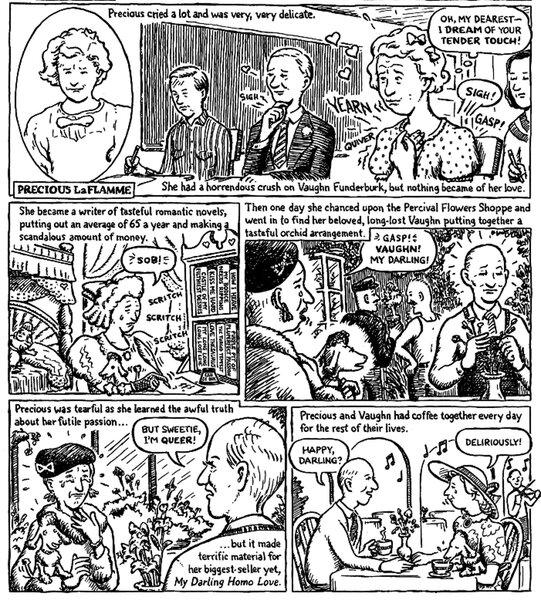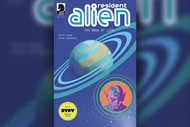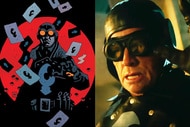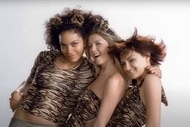Create a free profile to get unlimited access to exclusive videos, sweepstakes, and more!
Pride-ographies: Robert Triptow
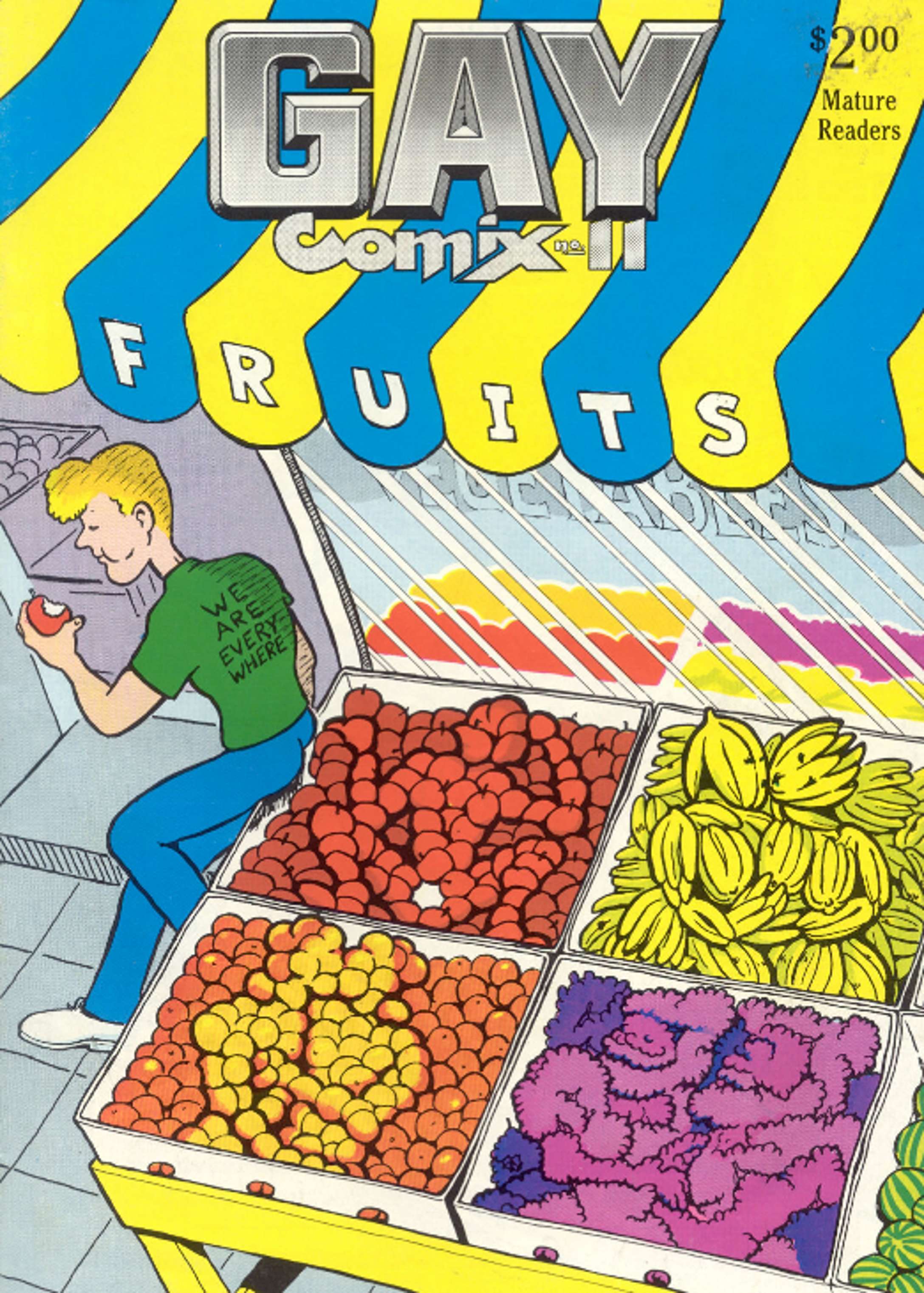
The Underground Comix era began in the late ‘60s in response to the heavy censorship of the medium due to the presence of the Comics Code Authority. People wanted to make books that looked like their lives, and so, as we had the indie explosion in cinema, so did comics see their own groundbreaking era of creativity. Some of these comix aged well, most of them haven’t, but all of them existed in the spirit of disrupting the status quo of the medium.
When discussing an era of experimental and groundbreaking autobiographical works in the comix scene, queer comix by queer creators so often fall by the wayside. While many artists of this time period went on to have illustrious careers, queer creators get nary more than a footnote. In hopes of changing the conversation for the better, we bring you Pride-ographies, a series of deep dives into queer comix history.
The first four issues of Gay Comix were released by Denis Kitchen’s Kitchen Sink Press and edited by the cartoonist Howard Cruse. The content and the creators remained mostly consistent afterward, albeit with some new faces along the way, but the series changed the editor as of issue five and the publisher as of issue six. Now under the Bob Ross banner and edited by Robert Triptow, the series continued to grow its audience while ushering in a new wave of queer cartoonists.
Of all the major players of Gay Comix, Triptow is one of the more mysterious. Few interviews exist online, and his first solo graphic novel collection didn’t hit the stands until 2015. Yet he is one of the most crucial parts of the Gay Comix story. Serving as editor from issues #5 through #13, Triptow kept the series going during some of the most devastating years of the AIDS crisis while working and suffering from physical ailments of his own.
Triptow was editor of the anthology during a shifting time for queer comics in general. As he noted in a 2008 blog post, “I’ve seen a big change in LGBT subject material in comics. When I first took over editing Gay Comix in 1984, I was swamped with coming-out stories, sex comics, and angry political diatribes, which got boring pretty fast,” adding, “The work I’ve seen lately is about the entire spectrum of life.”
Born in Salt Lake City, Triptow discovered underground comix while tripping acid, and was immediately compelled by the work of R. Crumb, which he eventually lost interest in but which ignited a love for the medium. He came out in his mid-twenties and was forever alienated from his conservative family. Within a few years, he had moved to San Francisco, where underground comix were everywhere due to the prominence of publishers at the time.
When asked how comix in San Francisco had changed from then to now, he noted, “The cartooning scene in the Bay Area has changed radically since the ’60s and ’70s in that it has disappeared. I only know of one or two other cartoonists who can afford to live in San Francisco these days. I’m still here only because I 'married' well. Most cartoonists I know are in Seattle and Portland now. We all used to flock to San Francisco, which was the capital of underground comix. There were several publishers at the time: Rip Off Press, the Print Mint, and Last Gasp, along with a smattering of smaller self-publishers, and it was fairly easy to get published if you were any good at all (sometimes even if you weren’t good). But opportunities to publish 'hippie comix' disappeared with the hippie era, mostly because the distribution system — 'head shops' across the country — also disappeared. And let’s face it, the subject matter of 'undergrounds' got tired; you can specialize in breaking taboos for only so long… If R. Crumb were trying to break through today with the material he did in 1967, he’d probably have a hard time getting published.”
As with all the Gay Comix editors, Triptow didn’t just edit the book. His work first appeared in the series with Gay Comix #2, and he contributed short pieces throughout much of its run. More recently, Triptow has noted that the work he did for the series was on a tight deadline and that physical ailments and issues of self-esteem and general well-being kept him from being able to fully enjoy the process of creation.
The emphasis on using irreverent humor to convey subversive ideas is perhaps strongest during Triptow’s run on the book — and in his comix, then and now — and is a reflection of that. In Gay Comix, he wrote stories like Bi… Bi… Love, in which we follow the tale of a polyamorous man who is never fully satisfied with his affairs because he’s always longing for someone else. Rather than being stereotypical of portrayals of bisexuals of the time, he is the protagonist, his affairs are lighthearted, and he feels relatable. This is the kind of take on life that Triptow would later bring to the pages of his graphic novel Class Photo.
Class Photo is Triptow’s most comprehensive collection of work, and it’s based on a photo of a random classroom he found, taken in 1937. He was never been able to pinpoint the photo's origin, so instead, he kept it and created bizarre life narratives for each of the faces shown. Class Photo isn't necessarily a straightforward story arc so much as a themed collection of shorts. It's a sometimes silly, sometimes serious look at lives that, as Triptow admits in the epilogue, were probably stranger in real life than he could have imagined.
Triptow’s unique insight on comix and Bay Area life in a time before the city became fully gentrified and unaffordable for artists is part of why the label “The Last Underground Cartoonist” pops up in regard to him so often. But there has to be something more to it than that. Triptow’s animation style, his interest in short story arcs and punchlines, and his general feelings of being somewhat of an outsider even in the queer community of his day all combine to create a portrait of a person fully connected to the underdog spirit of underground comix.
